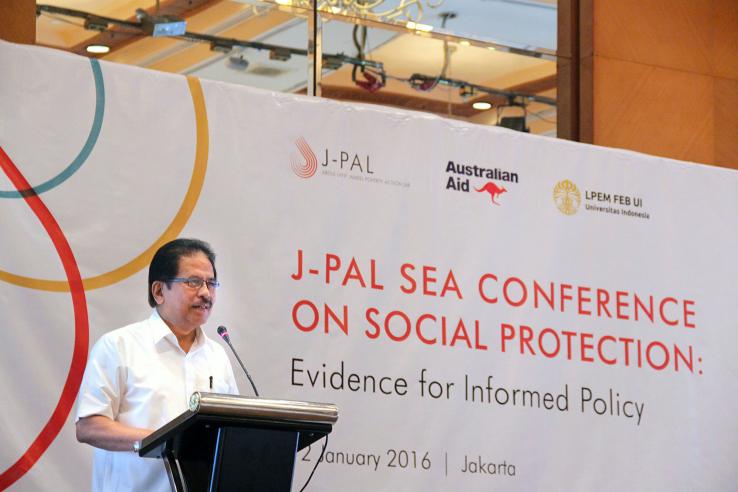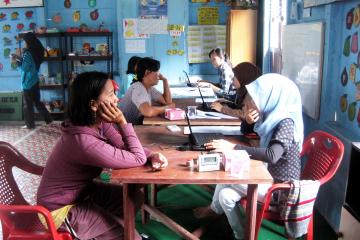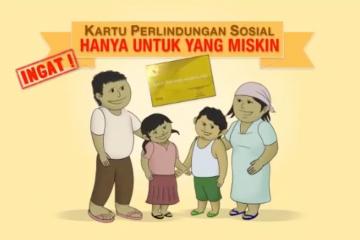Improving social protection programs in Indonesia

"A good policy is one based on evidence," said Sofyan Djalil, Indonesia’s Minister of National Development Planning, at J-PAL's conference in Jakarta.
How can governments ensure that social safety net programs reach their intended beneficiaries? What are the benefits and costs of delivering cash transfers electronically? In Indonesia, social protection programs provide over 65 million low-income households with everything from cash support to subsidized food and insurance. To help answer these questions, J-PAL Southeast Asia hosted a policy conference on January 12 on designing social protection programs. Over 200 policymakers, researchers, donors, and civil society members discussed what has worked and how to further improve social protection in Indonesia and Southeast Asia. J-PAL hosted the event with support from the Australian Government and J-PAL's Governance Initiative, supported by the UK Department for International Development (DFID).
“Collaboration with research institutes such as J-PAL is necessary since a good policy is one based on evidence.” said Sofyan Djalil, Indonesia’s Minister of National Development Planning, who delivered keynote remarks along with Andi Dulung, Director General of Social Protection and Security in the Ministry of Social Affairs and Bambang Widianto, the Executive Secretary of Indonesia’s National Team for the Acceleration of Poverty Reduction (TPN2K). “The Government of Indonesia is trying to make improvements in every aspect related to poverty alleviation and inequality. It needs a policy plan based on research,” said Widianto.
“Even a program as simple as giving poor households cash has many design questions to think about,” said J-PAL Southeast Asia co-Scientific Directors Rema Hanna (Harvard) and Benjamin Olken (MIT) in a January 12 op-ed in the Jakarta Post. At the conference, Ben and Sudarno Sumarto (TPN2K) shared effective ways to improve the targeting of cash transfer and subsidized rice programs in Indonesia. Jenny Aker (Tufts University) presented evidence from her research on various ways to deliver cash transfers, including via mobile money. Gabriel Kreindler (MIT) shared findings that dispel the assumption that cash transfers discourage work.
Download the conference slides here. For more information on J-PAL Southeast Asia, please email Widyana Perdhani.


